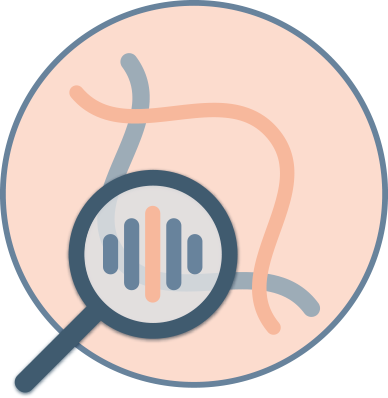Options according to your patient’s needs
Support for your clinical decision-making


Single gene analysis: a set of diagnostic tests (see below) for a specific genetic condition associated with variants in a particular gene or genomic region
Gene sequencing by various methods
MLPA (multiple ligation-dependent probe amplification)
Repeat expansion testing

Chromosomal microarray analysis: the gold standard for the detection of deletions and duplications across the genome
Precision panels: a set of
diagnostic tests using next generation sequencing (NGS) of multiple genes associated with a condition or phenotype.
The most comprehensive option – whole exome sequencing: analysis of the protein-coding regions of the genome (the exome)
*Trio analysis (biological father, biological mother and index patient) can improve the diagnostic yield by allowing the identification of de novo variants
More Information